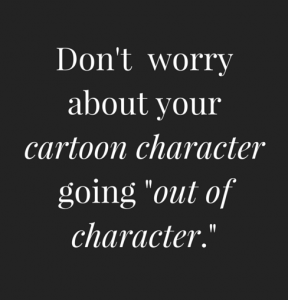 Testimonials. Spokesperson. Celebrity endorsements.
Testimonials. Spokesperson. Celebrity endorsements.
In many ways these seem like a great idea for promoting your brand. You ride the wave of recognition, likability, and repeatability.
And your brand image edges blur into the reputation of the person who is speaking for and about your brand.
It usually starts out smoothly and everyone is all smiles.
But then something happens.
Sometimes a celebrity's personal life choices are not what you'd want to have your target market think of when they think of your brand.
Or the spokesperson does something illegal, or is just being investigated for maybe doing something illegal.
Because of the immediacy of social media, it may not even matter if they are guilty or not, the mob mentality has already gotten a hold of the news and "shared it".
As the owner of the brand, you have some tough choices. Sometimes the best choice is to "immediately sever all ties." In other situations, when the behavior is "inconsistent with the company's image", announcing that you and the spokesperson have "mutually decided to suspend the relationship" may the best course of action.
When using a spokesperson or other endorsement where the brands get intertwined, good marketing plans include an exit strategy, just in case things don't work out.
Brands like Nike, Kellogg, Speedo, Subway, and Jello have all had these types of discussions with athletic celebrities who have done endorsements for their brands.
So while have a "Tony the Tiger", a "Burger King" or a "Dough Boy" might not be as powerful as a star athlete, or top celebrity or even a real person who has successfully used your brand to lose weight, as the marketing manager on the brand, you don't have to worry about your cartoon character going "out of character."

